Jungle Book Reimagined sends Mowgli on a modern journey through the climate crisis, in a cautionary tale told through dance
- The Akram Khan Company expands on a theme of the classic short stories by Rudyard Kipling, about the threat that mankind poses to nature
- The show, which is part of the 2022 New Vision Arts Festival, features choreography that replicates the movements of various animals
Thanks to Walt Disney, we are well accustomed to stories with anthropomorphic animal characters that reflect real-world issues and morals. But in 1894, British writer Rudyard Kipling mastered this form of storytelling with The Jungle Book, a collection of short stories about Mowgli, a boy raised by wolves who navigates a dangerous world caught between his adopted family in the wild and the human community.
The work was inspired by ancient Indian fables, and the storyline was based on Kipling’s childhood experiences of growing up in India and later being sent to live in a foster home in England. As a result, The Jungle Book explores subjects such as belonging, friendship, abandonment and self-actualisation.
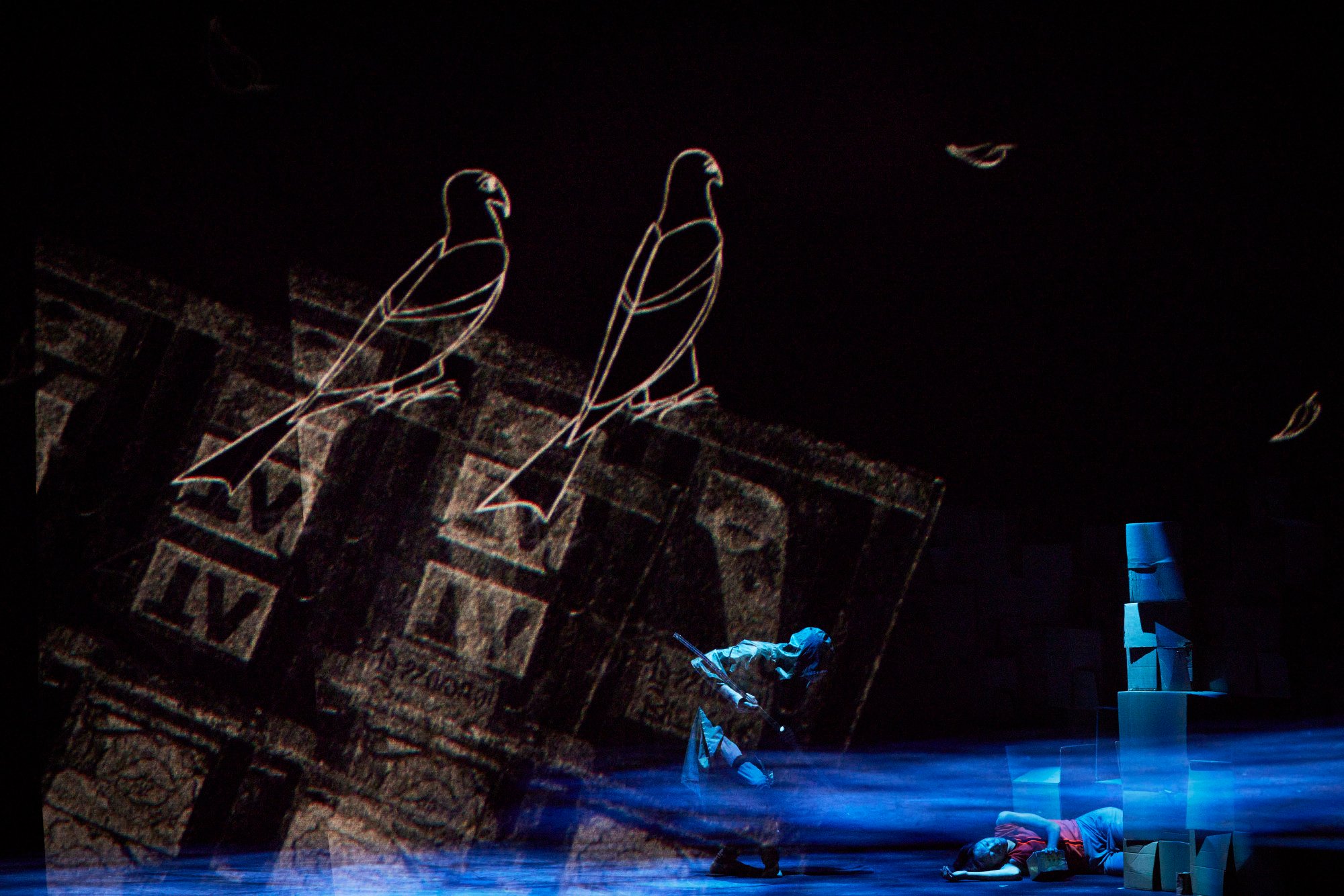
The universal themes of Kipling’s stories continue to resonate with audiences around the world more than a century after they were first published, helped by various stage and movie adaptations.
Classic tale with contemporary relevance
The latest of these adaptations is Jungle Book Reimagined, a production created by the internationally renowned British dance troupe Akram Khan Company, and which is being presented in Hong Kong as part of the annual New Vision Arts Festival.
The dance company’s two co-founders, producing director Farooq Chaudhry and celebrated dancer/choreographer Akram Khan, first came up with the concept in 2019 during a casual conversation in Avignon, France, where they were attending a festival.
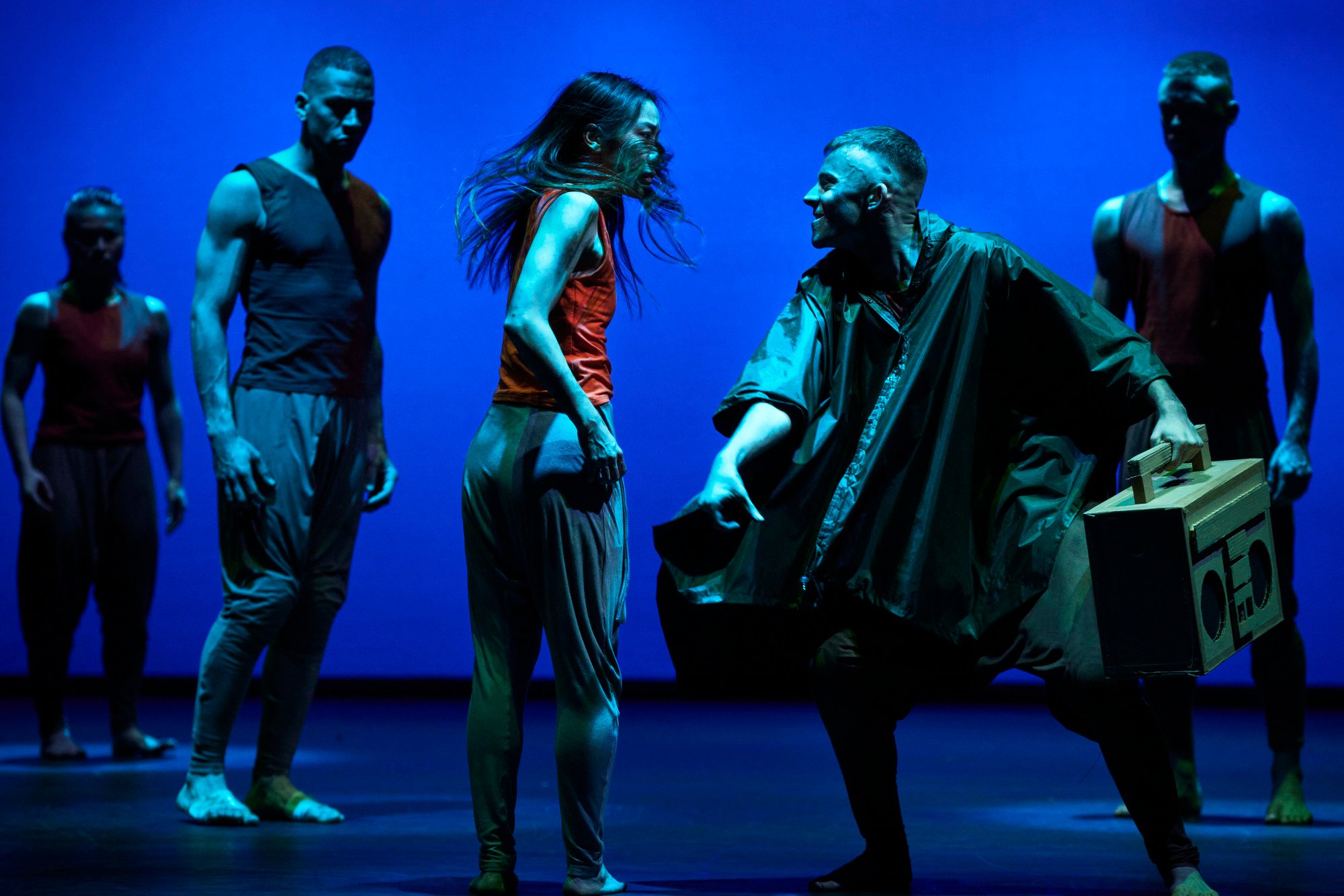
“We were sitting in a beautiful cafe and discussing what to do next. We knew we wanted to create something family-friendly, catering to all generations. When Akram proposed the idea of The Jungle Book, it made sense,” Chaudhry recalls. “This was a classic tale with universal resonance, and we could take it and make something relevant for today’s day and age.”
The source material resonated on a deeply personal level for Chaudhry, who is of Pakistani descent. He grew up in London during the 1960s and 70s, which he says “weren’t great times for people of colour from marginalised ethnic minorities”. At age 17, he saw a dance recital for the first time and was enthralled by the diversity of the people who worked together to put on the show, with no divisions based on ethnicity or race.
The animal world is in danger. It’s part of nature that’s under threat from mankind
That experience sparked a passion in Chaudhry that would lead him to drop his English studies at university to pursue a professional dance career instead. It was shortly after he retired from dancing in 1999 that Chaudhry crossed paths with Khan, a British-Bangladeshi dancer.
“I had just relocated to London after a few years of living and working in Belgium when I met Akram,” he says. “I encountered him as a young choreographer and performer, and I remember thinking: what wonderful language this guy has … he’s going to be the future of contemporary dance. We had a chat, and we started this company. The rest is history.”
Interpreted from a modern point of view
Chaudhry says that when the idea for Jungle Book Reimagined was first proposed, Khan had recently become a father, so telling stories to future generations through his work was something on his mind. Khan even has his own childhood connection to the tale: at age 10, he played Mowgli in a dance adaptation of The Jungle Book for British theatre and film director Peter Brook.
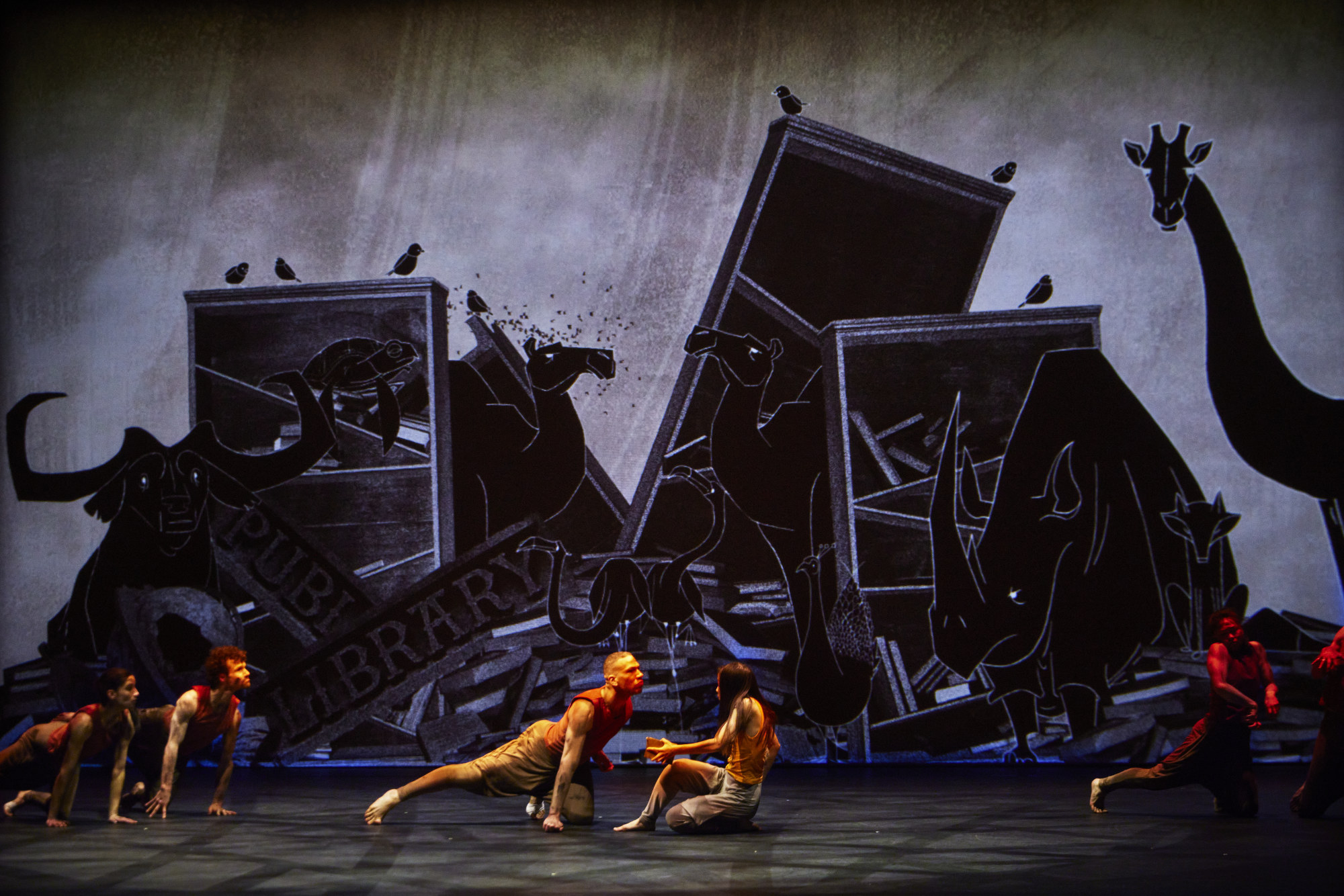
The original version of The Jungle Book touched on the danger that mankind poses to nature, which is even more relevant today amid concerns about climate change. With Jungle Book Reimagined, Chaudhry says, Khan has sought to expand on that idea in terms of the state of the modern world.
“We have really gone quite far away from the Kipling text. We’ve kept all the animal characters, we’ve kept Mowgli. We kept trying to integrate this human being into this animal world, and then we flipped it on its head completely,” Chaudhry explains. “The animal world is in danger. It’s part of nature that’s under threat from mankind.”
Once the concept fully took shape, the next step was for Chaudhry to secure the funds for bringing the vision to life. “For this, the New Vision Arts Festival in Hong Kong felt like a natural choice, because they’ve been a great supporter of Akram Khan Company over the years,” he says. “They have always had a lot of faith in us, plus the Hong Kong audience is familiar with Akram’s work and understands his language.”
Khan has presented numerous works in Hong Kong over the past decade, including Until the Lions at the 2016 New Vision Arts Festival. That production was inspired by The Mahabharata, a Sanskrit epic poem about a power struggle between two sets of cousins in ancient India.
For Jungle Book Reimagined, eight students from the Hong Kong Academy for Performing Arts (HKAPA) were given the opportunity to train and rehearse with the Akram Khan Company in London. Among that group is Philippines native Jan Mikaela Villanueva, who was chosen to perform as a guest artist in the production’s world premiere in Leicester, England, earlier this year.
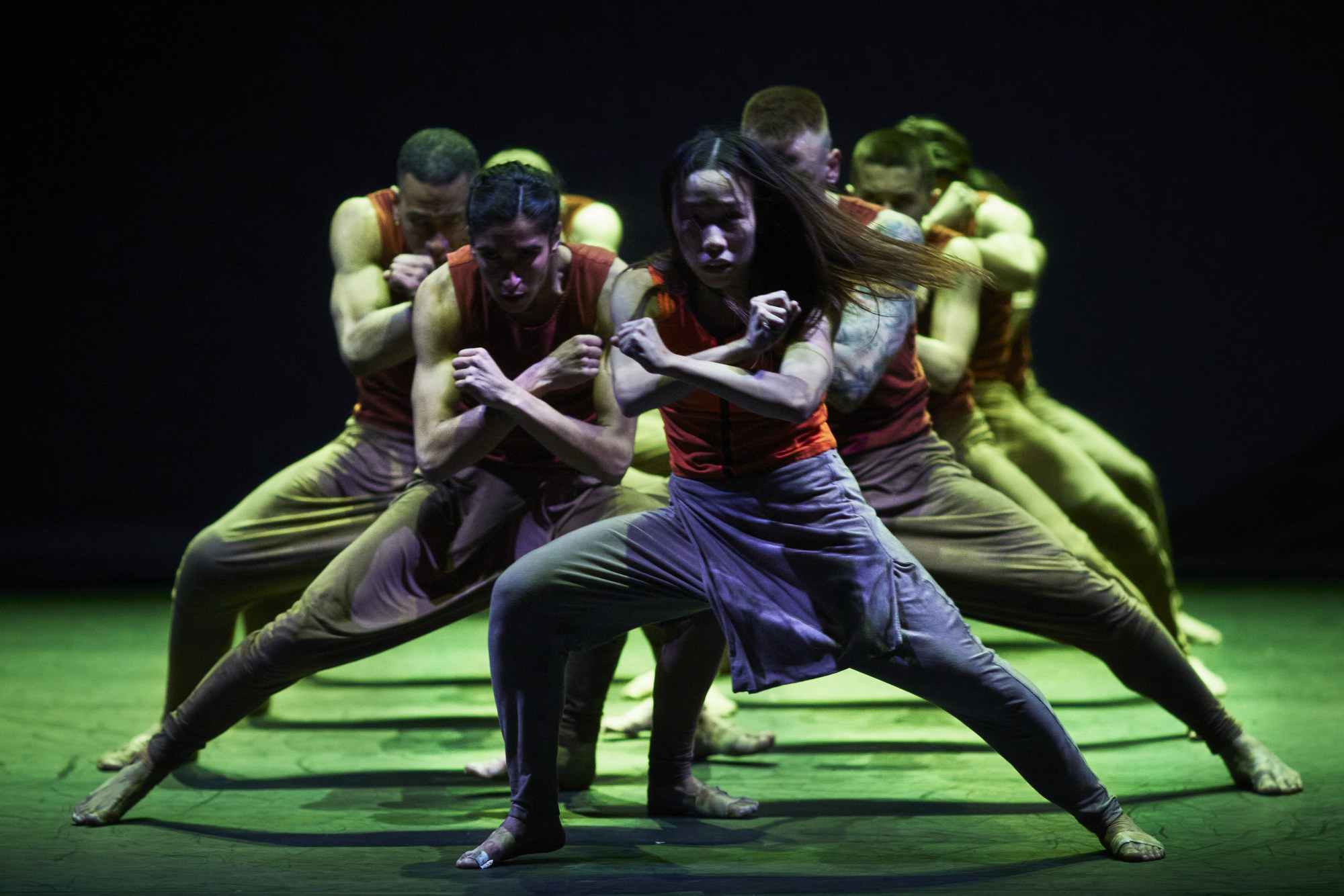
In the New Vision Arts Festival performances, Villanueva will share the role of Mowgli with Shum Pui-yung, a member of the Akram Khan Company who hails from Hong Kong.
“Mika [Villanueva] is the perfect Mowgli,” Chaudhry says. “She has this beautiful innocence and fragility about her, and is so emotionally engaged with the character. When Mika’s on stage, you really care about Mowgli.”
Villanueva, now an HKAPA graduate and member of the dance company, says of her work in the production: “Taking on the role of Mowgli alongside the other characters is both a responsibility and an opportunity to advocate for the fight against climate change.
“As I perform as Mowgli, I am reminded of a little child’s innocence, her curiosity and her sense of obligation to take care of her surroundings. One of Mowgli’s role models is her mother, who is generous with what she has, capable of love and trust, and protective of those who are important to her,” she adds.
“I do occasionally realise that I’m relating my emotions to my own unique experiences, and translating them into Mowgli’s persona. It is physically and emotionally draining, but also extremely rewarding.”
Villanueva will share the stage with a line-up of skilled dancers portraying various animal characters. No effort was spared to help them completely inhabit these roles, which included getting guidance from Hollywood’s leading man in physical acting.
Chaudhry says: “Thankfully, we had [actor] Andy Serkis – who played Gollum [in the Lord of the Rings films] and made all the Planet of the Apes movies, and who’s a dear friend of Akram – come in and help the dancers explore those kinds of ape movements and animalistic characteristics that Akram wanted to replicate in their bodies.”
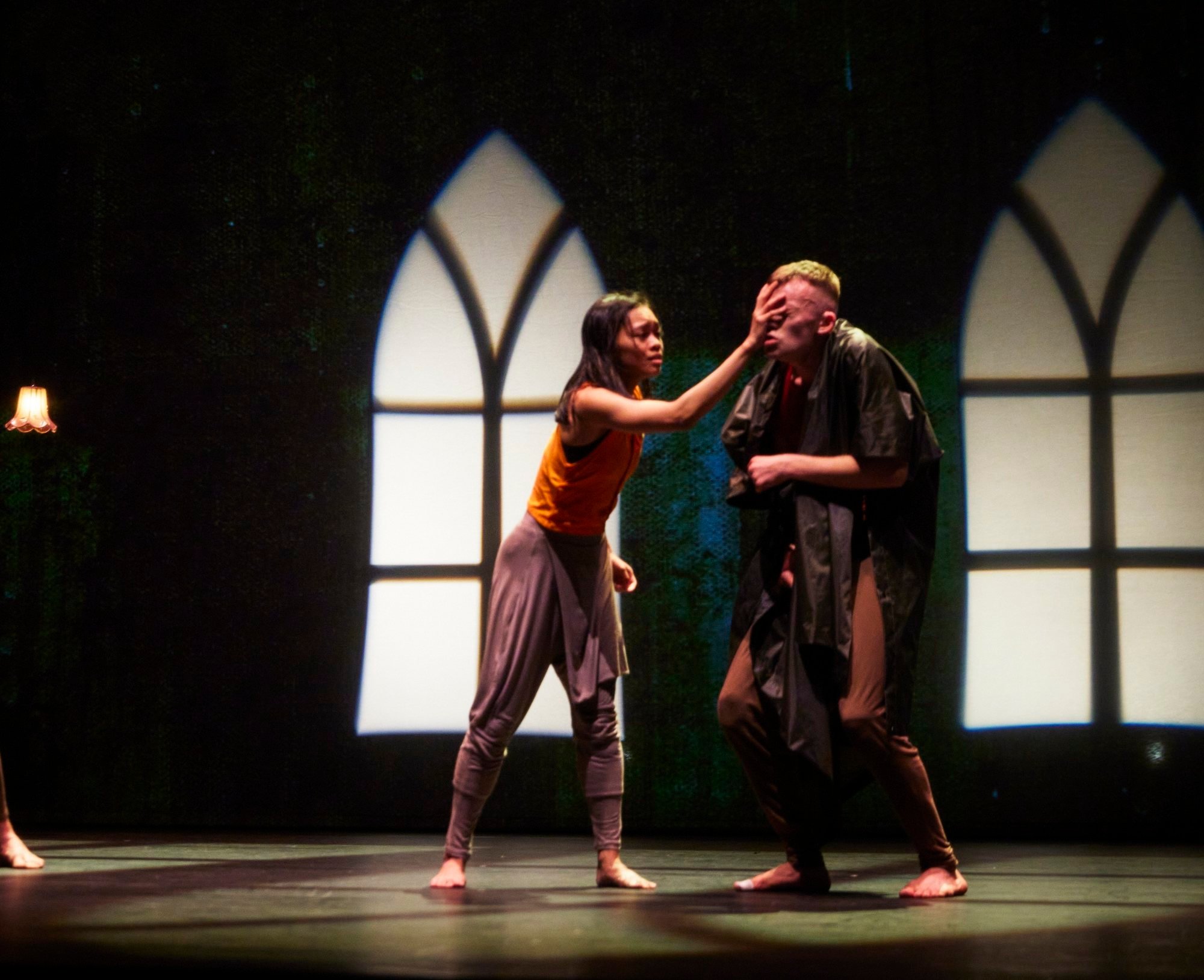
On working with the Akram Khan Company, Villanueva says: “I feel truly privileged to be able to witness Akram’s creative process. It is a magical experience to see how he easily transforms and connects material and media in a snap.”
Bringing the story to life
Jungle Book Reimagined is more than simply a dance performance – it is also a multimedia experience, with animation playing an important role in the show. “For this production, we have created a very innocent, childlike frame-by-frame element, with rotoscoping. The animation is not too refined or sophisticated – it depicts the world of a child, the imagination of Mowgli,” Chaudhry explains.
State-of-the-art projection work is used to present a cohesive and engaging performance. “We discovered a special curtain, which is virtually invisible and allows us to seamlessly integrate animations in the recital without distracting audiences. It was quite expensive, but we know it’s worth it,” Chaudhry says.
In addition, to keep in line with the show’s theme, a large portion of the set has been built using recyclable and reusable cardboard boxes.
With its contemporary twists on a classic tale depicted through expressive choreography and striking visuals, Jungle Book Reimagined seeks to send audiences an urgent message about our impact on the planet.



